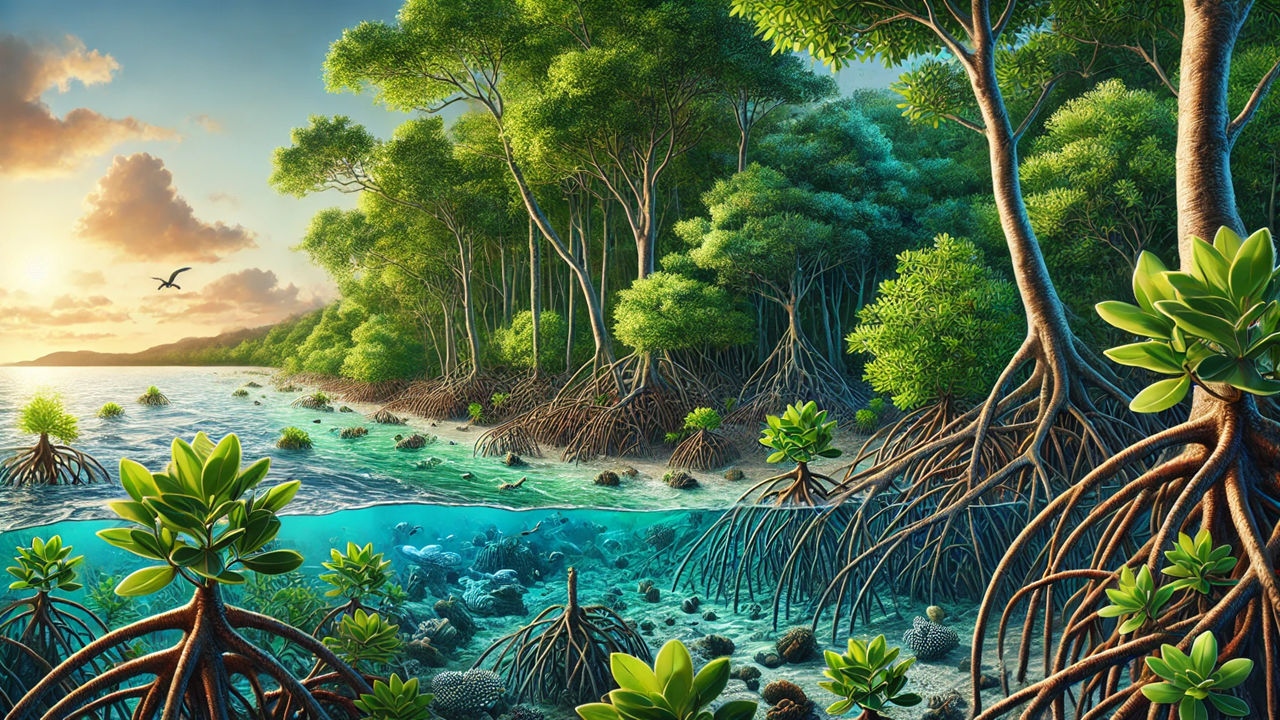Ghana’s Blueprint for Climate Action: Unveiling the Blue Carbon Potential
Ghana’s coastal ecosystems are key to combating climate change. The report "Ghana: A Blue Carbon Readiness Assessment" explores opportunities to leverage mangroves and other blue carbon habitats for carbon storage, biodiversity conservation, and sustainable development. Key recommendations include building institutional capacity, engaging communities, and securing international support.

In a groundbreaking exploration of Ghana’s coastal ecosystems, the report "Ghana: A Blue Carbon Readiness Assessment" sheds light on the untapped potential of blue carbon ecosystems in mitigating climate change while driving sustainable development. Published by the World Bank Group, this comprehensive assessment underscores the importance of preserving and harnessing mangroves, seagrasses, and salt marshes as natural allies in the global fight against carbon emissions.
The Hidden Power of Blue Carbon Ecosystems
Blue carbon ecosystems are nature’s silent warriors against climate change. These ecosystems, spanning mangroves, seagrasses, and salt marshes, are capable of capturing and storing vast amounts of carbon dioxide, providing a natural buffer against rising emissions. Beyond their climate benefits, these habitats play a pivotal role in biodiversity conservation, shoreline protection, and supporting the livelihoods of coastal communities.
Ghana’s Coastal Landscape: A Call for Action
Ghana’s coastal regions, rich in mangrove forests and other blue carbon resources, are under increasing pressure from deforestation, urbanization, and pollution. The report highlights the urgent need to integrate blue carbon conservation into Ghana’s climate action plans and sustainable development agendas. This approach not only aligns with global commitments, such as the Paris Agreement but also secures long-term ecological and economic benefits for the nation.
Opportunities for Change
Ghana’s participation in international frameworks like REDD+ opens doors for blue carbon initiatives. A key recommendation of the report is the development of a blue carbon inventory to quantify carbon stocks and emissions. Such data-driven strategies are vital for informed policymaking and accessing global climate finance mechanisms, including carbon credit schemes. With the right investments, Ghana stands poised to become a leader in blue carbon conservation and climate resilience.
Navigating the Challenges
The path to effective blue carbon management is fraught with challenges. Limited scientific data and weak institutional frameworks present significant barriers. Additionally, the socio-economic dependence of coastal communities on mangrove resources for fuel and construction exacerbates degradation. Addressing these issues requires a multifaceted approach that balances environmental preservation with community needs.
A Roadmap for Progress
The report outlines actionable steps to overcome these barriers and unlock the full potential of Ghana’s blue carbon ecosystems:
Strengthen Research and Data Collection: Invest in scientific studies to build a robust understanding of Ghana’s blue carbon resources.
Enhance Institutional Capacity: Foster cross-sectoral collaboration and improve governance structures to support sustainable management.
Promote Community Engagement: Implement community-based management t practices and introduce alternative livelihoods to reduce pressure on mangrove resources.
Secure International Support: Leverage global funding opportunities and technical assistance to scale up conservation efforts.
Global Implications and Policy Integration
Blue carbon ecosystems hold immense potential not just for Ghana but for the world. By integrating blue carbon strategies into its Nationally Determined Contributions (NDCs), Ghana can set a precedent for other nations. The report’s call for international cooperation and ecosystem-based solutions underscores the global significance of these habitats in combating climate change.
The publication of "Ghana: A Blue Carbon Readiness Assessment" marks a significant milestone in Ghana’s journey toward climate resilience and sustainable development. As the world grapples with the escalating impacts of climate change, this report serves as a timely reminder of the transformative power of nature-based solutions. Ghana’s commitment to preserving its blue carbon ecosystems not only safeguards its environmental heritage but also contributes to a healthier, more sustainable planet.
- FIRST PUBLISHED IN:
- Devdiscourse
ALSO READ
Africa Set to Use Critical Minerals for Sustainable Development and Intra-Continental Trade Growth
Reviving Ancestral Wisdom: Embracing Sustainable Development in India
MDBs Target Scalable Solutions to Boost Private Capital for Sustainable Development
World Bank Launches 2025 with AUD 1.75 Billion Sustainable Development Bond in Kangaroo Market










